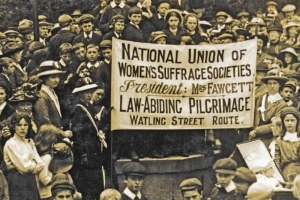Piercers, Press Girls, and Penny Capitalists
WOMEN AND THE NINETEENTH-CENTURY BIRMINGHAM ECONOMY
Small Shop, big Impact
At a time when the British economy moved towards the development of large factories employing thousands, Birmingham’s economy, save in a few cases, was largely defined by small businesses producing a single product. In the Jewellery Quarter, for example, it was rare for firms to have more than 150 employees.
Within the city of a thousand trades, women played diverse roles. During the industrial revolution demand for labour had increased and women were affected by this process, earning individual wages, sometimes as part of a family income.1 The nature of Birmingham’s small business economy allowed women to integrate further into traditional male roles than elsewhere. Moreover, married women had to balance domestic management with participation in the wider economy. ‘Women’ is not a catch-all term, and although it is being used here for descriptive purposes it should be underlined that using the term on its own ignores other definitive categories such as age or class.
Download the Full Article (PDF)


